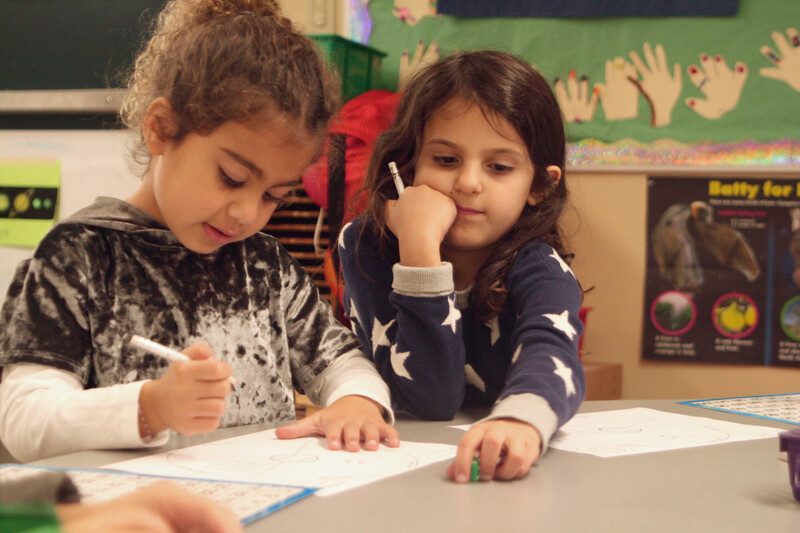How can schools promote the achievement of children who are old enough to enroll in kindergarten but who are not developmentally ready to succeed? Two approaches that parents and schools commonly use are delaying the child's entry into kindergarten and retaining the child in kindergarten for an extra year.
Giving children an extra year, whether through delayed entry or kindergarten retention, makes sense in view of the ample research suggesting that the youngest children tend to lag behind their classmates. West, Denton, and Reaney (2000) found that in the spring of their kindergarten year, younger children had lower reading and mathematics knowledge and skills on average than did their older counterparts. These researchers also found that older kindergartners were more likely to persist at tasks, more eager to learn, and better able to pay attention.
Delayed Entry Versus Kindergarten Retention
To avoid the disadvantage suffered by younger students, some parents choose to delay the entry of their children into kindergarten. Zill, Loomis, and West (1997) found that children whose kindergarten entry was delayed so that they started kindergarten when they were older performed better than their younger classmates in grades 1 and 2. These researchers concluded that the extra year before starting kindergarten does not harm the children who are held out and may help most of them.
In contrast, the researchers discovered that children who repeated kindergarten were doing worse than their younger classmates on most school performance indicators by 1st or 2nd grade. For instance, two-thirds of the retained students had received some negative feedback from teachers compared with less than half of the nonretained students. The retained students were also much more likely to have problems concentrating, to perform below their capabilities, and to act up and disrupt the class. Zill, Loomis, and West concluded that repeating kindergarten had not helped those children and may have actually made matters worse.
Reasons for the Differences
The underlying developmental problems of the two groups may differ.
The two groups may have different socioeconomic backgrounds.
Parents who choose to delay their children's school entry may have a higher level of awareness and involvement.
The stigmatizing effect of being required to repeat a grade may harm children's academic progress.
Potential Disadvantages of Delayed Entry
In spite of possible explanations based on group demographic differences, the research does suggest that delayed entry into kindergarten has a better chance than kindergarten retention of helping an at-risk child avoid school failure. As a broad practice, however, holding children out of school for a year can produce unintended harmful consequences.
Zill, Loomis, and West (1997) caution that delayed entry raises equity issues because its effects vary according to the child's experiences during the extra year. Better-educated and wealthy parents can provide their children with enriched educational environments at home or in high-quality preschool settings designed to improve their skills. But children with fewer advantages who are held out of kindergarten may not have as many opportunities to benefit from effective preschool programs or learning experiences at home.
Diamond, Reagan, and Bandyk (2000) point out another problem caused by delayed entry. When schools emphasize academic skills in readiness decisions and hold younger children out of kindergarten, the average age of each cohort of kindergarten students rises. This situation prompts policymakers to continue increasing the expectations for performance during the kindergarten year for these older children and for their teachers. Parents, in turn, experience increased concern about whether their children are academically ready for school—and the cycle of rising expectations continues.
The research on delayed entry and kindergarten retention suggests that neither practice offers an ideal way to assist children who are not ready to succeed in kindergarten. Do schools have alternatives to these two approaches?
Coley (2002) asserts that to reduce inequalities in students' success in kindergarten, society must address the differences that exist among children before they start school. He recommends that policymakers identify children who are at risk for school failure and make quality preschool experiences available to these children to ensure that they have the opportunity to develop readiness skills. But Coley cautions policymakers not to target a group of students on the basis of a single demographic characteristic, such as income. Because of the complex nature of school readiness, decision makers should take into account the interactions among race and ethnicity, gender, socioeconomic status, and age.
The National Association for the Education of Young Children's position statement on school readiness (2002) points to a different approach: Rather than attempting to “fix” children so that they meet specific expectations of a kindergarten program, educators should realize thatthe nature of children's development and learning dictates two important school responsibilities. Schools must be able to respond to a diverse range of abilities within any group of children, and the curriculum in the early grades must provide meaningful contexts for children's learning rather than focusing primarily on isolated skills acquisition.
Some researchers view full-day kindergarten as one way of providing more support for children who need it. Full-day kindergarten programs provide more time to expose children to academic content and prepare them for 1st grade in an emotionally relaxed atmosphere. According to Railsback and Brewster (2002),Full-day kindergarten is viewed as a way not only to help level the playing field for children with limited skills, but to reduce the chances of their being retained.
A high-quality, developmentally appropriate kindergarten experience may offer the best way to ensure early school success for children who enter school with a wide range of readiness levels (Miller, 2002).

